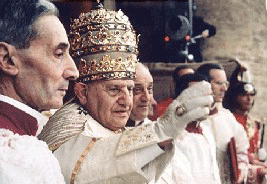Branches of that Good Olive Tree: 21st Century Liturgical Challenges and Possibilities
DOI:
https://doi.org/10.6017/scjr.v1i1.1364Keywords:
liturgy, mystery, Christian identity, tradition and change, Nostra Aetate, the Shoah, transformation, Incarnation, Sacrament, tikkun olam, prophets and prophecy, scriptural exegesis, messianic age, advent, liturgical yearAbstract
As indicated in the title, the article’s starting point is the dual affirmation in Nostra Aetate, §4 that the Church “draws its sustenance from the root of that good olive tree,” and that its mystery involves “the spiritual bond” linking it “with Abraham’s stock.” Noting the Church’s commendable liturgical efforts of the past post-Nostra Aetate decades, it observes that the “density” of the present time calls for a more comprehensive approach in the Church’s 21st century liturgical renewal efforts. Due to the rapid and complex confluence of religious, political, intellectual and cultural movements marking the present time, courageous and creative efforts are necessary for the Church’s liturgical response to retain its efficacy and authenticity. The goal of this two-part article is to encourage liturgical conversations that will help foster creative developments in a responsible manner over the next post-Nostra Aetate decade. To enable a more comprehensive overview of recent developments in liturgical theology and liturgical history, Part One briefly explores today’s richly pluriform action of liturgy, and shows the effects, at significant historical moments, of ensuring or neglecting both continuity and change in the Church’s liturgical expressions. After identifying four events or movements contributing to the density of the present historical moment, it proceeds, in Part Two, to outline a three-point focus for 21st century liturgical transformation. This then serves as the lens directing an exploration of new liturgical possibilities relating to the Liturgical Year and the Advent-Christmas cycle.Downloads
Published
How to Cite
Issue
Section
License
Copyright (c) 2015 Studies in Christian-Jewish Relations

This work is licensed under a Creative Commons Attribution 4.0 International License.
Please navigate to the Copyright Notice page for more information.

